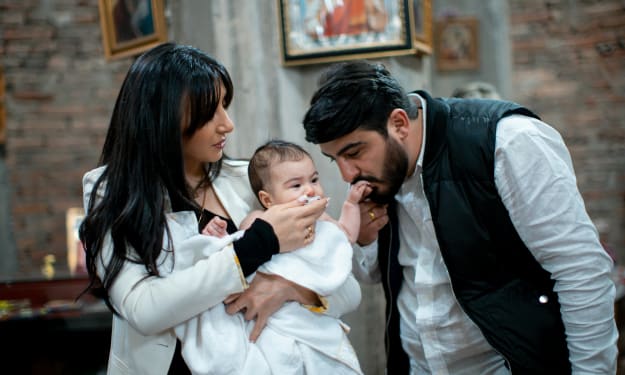Unbinding the Chains of Generational Trauma
As the problems of this generation unfolds, they strive to repair the broken pieces that was keeping them to see the beauty of life.

“Puro ka kasi cellphone” is the phrase that every Filipino Gen Zs has always heard growing up. Headache? Puro ka kasi cellphone. Stomach ache? Kaka-cellphone mo 'yan. Fever? Oh, that's probably because of using your phone too. Little did they know, technologies and social media are gradually becoming the platform that lets this generation breathe from the ‘gaslighting’ they’ve been raised to.
Through the Years
Across generations, parenting styles shaped by historical events, like the Great Depression in the 1930s, instilled values of obedience and conformity to ensure survival. However, successive generations unknowingly continued this pattern, unintentionally suppressing individual expression and emotional openness.
Generation Z (Gen Z), who was born in the years 1996 to 2012, is the generation who grew up when technological innovations were everywhere and access to information has been more convenient compared to the other generations. All the while, this generation has been trying to nullify the nativism and the mental damage that the past age groups have perpetrated.
As Gen Z dominates the era of advanced technology, it has become their tool for defying the cruel words that have been passed down to them, healing the wounds that remind them of the chains of trauma they have been enduring.
Filipino Parenting on the Internet
Recently, YouTube influencer Toni Fowler went viral for posting a video content showing how she “disciplines” her child. In the video, all her family members are gathered in a room while she is talking to her daughter. The conversation escalated into shouting until she slapped the child.
Her younger daughter, who is watching the scene, instantly becomes frightened by the action. This video became trending with million views and gained a lot of negative comments because of the way the influencer disciplined her child. However, countless people appeared to support this kind of parenthood as this was the way they were raised and disciplined.
Through every Gen Z’s social media literacy and by using their much-loved phones, they raised awareness about the Philippines' long-standing toxic culture and highly criticized Fowler’s parenting style since it may cause trauma to her children, which would later reflect on how they would socialize with people or react to certain situations.
“I personally think that parenting that involves physical punishments and violence needs to be stopped. It is high time for parents to stop telling their children that violence is a sign of love and discipline,” said 16-year-old senior high school student Cindy Cruz.
Rhealy Bestudio, 21, a criminology student, also disapproves of Toni’s parenting style, because Fowler displays her actions broadly, humiliating the child in what she does as she uploads it on social media for the internet to see. In addition, based on the reflection of the child's character, he is also mimicking Toni's violent behavior.
Fowler's parenting style is just one of the many cultures that were normalized by Filipino families, which the youth has been slowly outgrowing today. Gen Zs have pondered on themselves and considered alternative solutions to prevent this toxic parenting practice, including constructive and respectful communication to promote gentle parenting. One of which is encouraging everyone to use their platforms to show the negative effects of physical punishments and violence on the physical and mental well-being of children.
“I think one way to combat toxic parenting style is to approach your parents, express your thoughts and feelings, and make them realize the importance of open communication and that they need to open their minds if they want to be effective parents,” said Lovely Joy Altoveros, 21.
The Role of Social Media in Breaking the Chain
This generation is gradually untying the threads of unfitting traditions that were imposed on them through the ways that they were normally being scolded. And so far, they have been successful in doing so.
Content about learning to say “no,” not conforming to the utang na loob mindset, cutting ties with people, not normalizing body shaming, speaking for yourself, and taking care of oneself, in general, is widely shared on social media to reach its intended audience and assess if they've been dealing with these behaviors.
Through the Gen Zs' social media posts, it helped a lot of people realize the offenses that they had to, and they are still enduring to this day due to the destructive ways they grew up that caused them trauma.
The generational shift led by Gen Z is driving a transformational effort to break the toxic culture cycle, which was deeply rooted in the Philippine society. Armed with their laptops, tablets, cellphones, and other digital devices, this generation is paving the way for a more healthy and free society for the next generation to live in.
About the Creator
Danica Espedillon
living life is seeing colors.
Enjoyed the story? Support the Creator.
Subscribe for free to receive all their stories in your feed. You could also pledge your support or give them a one-off tip, letting them know you appreciate their work.






Comments
There are no comments for this story
Be the first to respond and start the conversation.